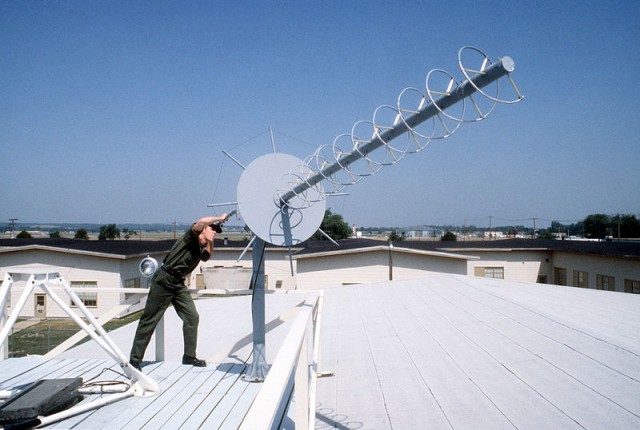Mission-critical satellite communications relied on by Western militaries and international aeronautics and maritime systems are susceptible to interception, tampering, or blocking by attackers who exploit easy-to-find backdoors, software bugs, and similar high-risk vulnerabilities, a researcher warned Thursday.
Ground-, sea-, and air-based satellite terminals from a broad spectrum of manufacturers—including Iridium, Cobham, Hughes, Harris, and Thuraya—can be hijacked by adversaries who send them booby-trapped SMS text messages and use other techniques, according to a 25-page white paper published by penetration testing firm IOActive. Once a malicious hacker has remotely gained control of the devices, which are used to communicate with satellites orbiting in space, the adversary can completely disrupt mission-critical satellite communications (SATCOM). Other malicious actions include reporting false emergencies or misleading geographic locations of ships, planes, or ground crews; suppressing reports of actual emergencies; or obtaining the coordinates of devices and other potentially confidential information.
"If one of these affected devices can be compromised, the entire SATCOM infrastructure could be at risk," Ruben Santamarta, IOActive's principal security consultant, wrote. "Ships, aircraft, military personnel, emergency services, media services, and industrial facilities (oil rigs, gas pipelines, water treatment plants, wind turbines, substations, etc.) could all be impacted by these vulnerabilities."
Read 5 remaining paragraphs | Comments
